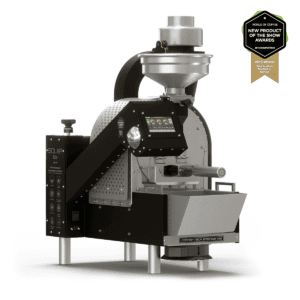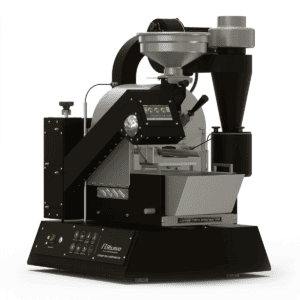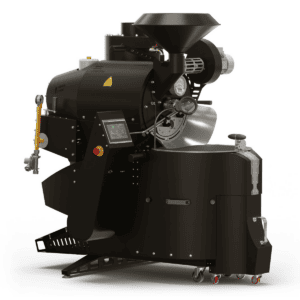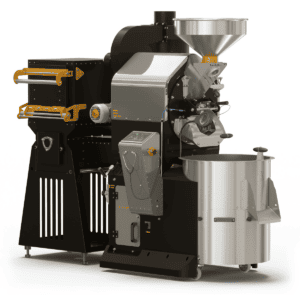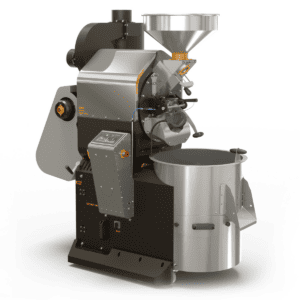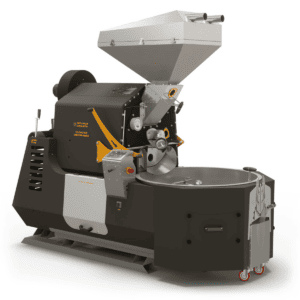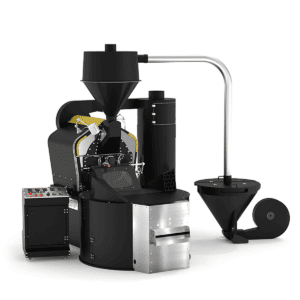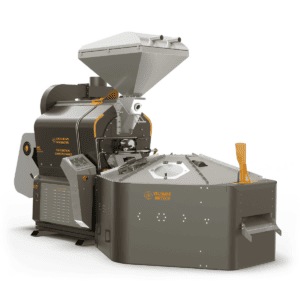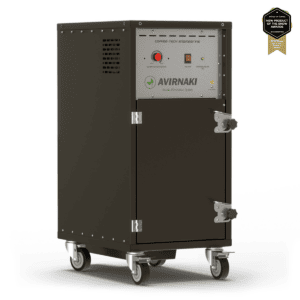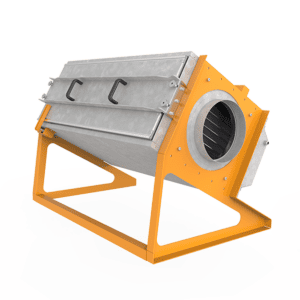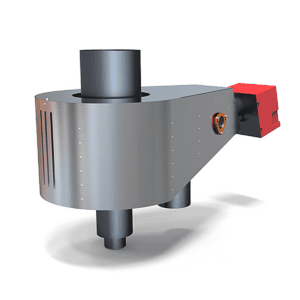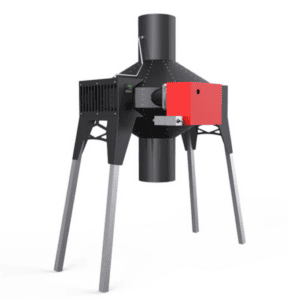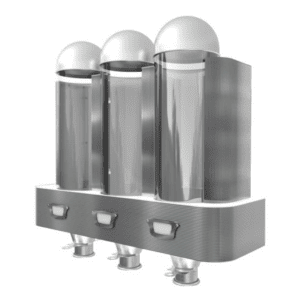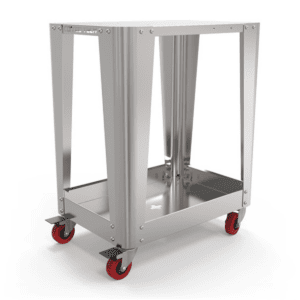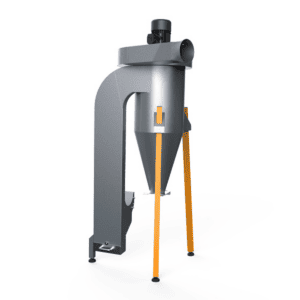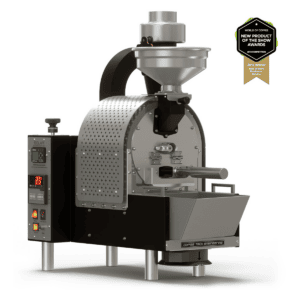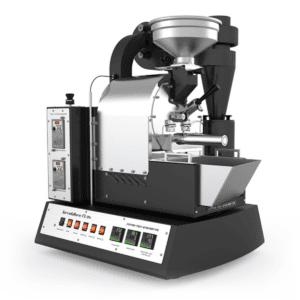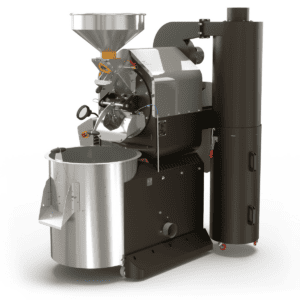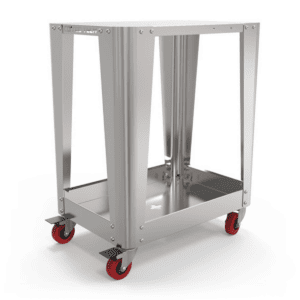Choosing to start roasting coffee from scratch, whether as a coffee shop or a roaster with no previous experience, is not a decision to be taken lightly. Without a solid understanding of the science and art of coffee roasting, the selection of your shop roaster machine can either make or break your entire business.
Why Choosing the Right Shop Roaster Matters
In the coffee roasting world, there are plenty of products to choose from. The market is filled with roasting machines labelled as “shop roasters,” but many of these options are far from suitable for professional use. Some are glorified home roasting machines with too small batch sizes, while others are low-quality, imported gas roasters that lack the necessary certifications for legal operation in North America.
When choosing a coffee roaster machine, it’s crucial to consider factors that can impact your success, such as design, build quality, CSA certification, control features, long-term reliability, spare parts availability and much more. The coffee roaster you choose impacts the consistency, quality, and scalability of your coffee business. Here are 11 factors to think about when investing in a coffee roasting machine.
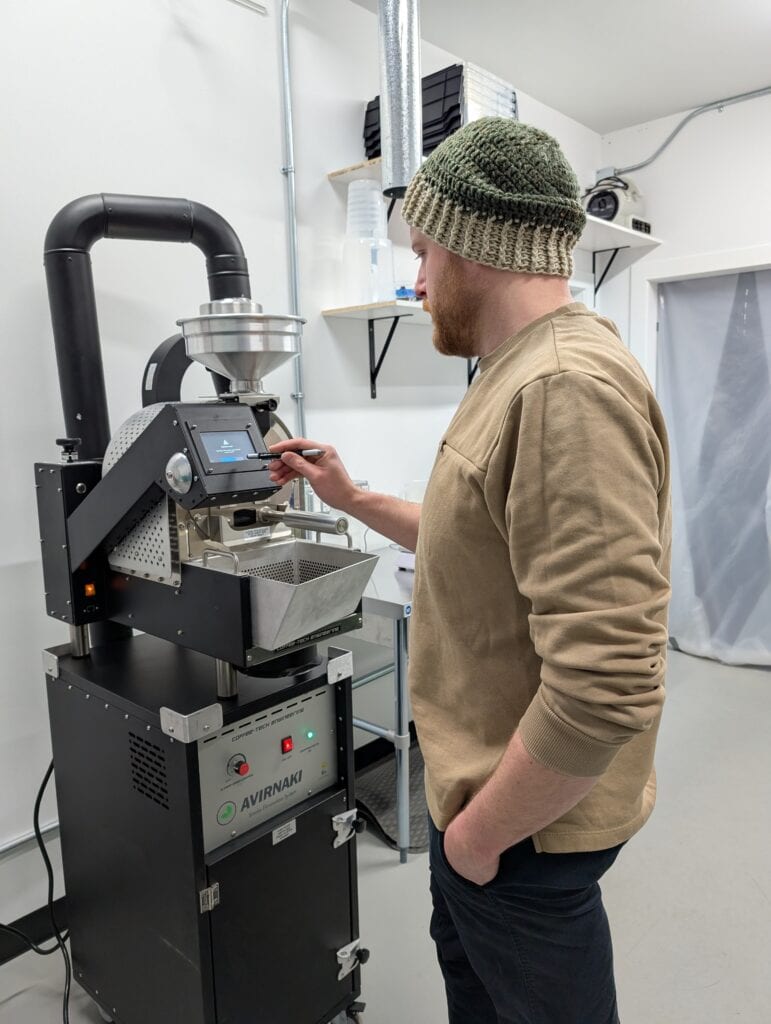
11 Factors to Consider When Evaluating a Coffee Roaster Machine
- Drum Temperature Control: It’s important to have control over the temperature of the roasting drum. Your commercial roaster should allow you to control the temperature of the drum from start to finish of the roasting process.
- Temperature Measurement: While visual inspection can help indicate when to drop your beans from the roasting drum, accurate temperature measurement will allow you to duplicate roasting profiles by having specific data points to use for decision-making during the roast.
- Fan Speed Control: A necessary function to help control the rate of temperature increase or decrease during the roasting process – this is imperative to aid you in the development of desirable flavours and aromas in your finished coffee.
- Drum Speed Control: Help control the heat transfers via conduction vs. convection by varying the contact time of the beans on the heated walls of the drum.
- Batch Size: Keep in mind that if the batch size is too small, you’ll need to perform many roasting cycles to get any significant volumes of roasted coffee. However, if you’re a new roaster who’s learning along the way and the batch size is too big, you could be throwing away large quantities of poorly roasted beans. Our team can recommend an appropriate batch size (and coffee roaster model) specifically matched to your roasting needs!
- Certification and Compliance: Make sure your coffee roaster meets the necessary safety regulations for your country, ensuring safe operation and legal compliance. Installing and operating non-certified equipment is illegal and could result in fines and potential safety risks.
- Installed Coffee Roaster Controls: With a well-built shop roaster, you’ll be able to manipulate various phases of the roasting cycle. But without adequate controls, combined with limited experience, it can be challenging to roast beans correctly. Inadequate controls on coffee machines can impede the ability to achieve repeatable, consistent results.
- Manufacturer’s Reputation: When making this significant investment, ensure that the manufacturer and distributor who is selling the machine has a reputable history. Tip: Before buying, check if they offer continued technical support and repairs if something goes wrong.
- Spare Parts and Support: Having easy access to spare parts and reliable customer support is critical when your coffee roaster needs repairs or maintenance. With a roasting machine’s long lifetime of up to 25 years or longer, it will need maintenance and repairs from time to time. We’re proud to offer ongoing customer support – check out our service and installation information here.
- Gas-Fired or Electric Roasters: Is the coffee roasting machine powered by gas or electricity? If it’s gas-fired, you’ll need a certified gas technician who can install it and ensure you can properly vent the gas fire exhaust from your roasting space. (Note: venting outside could require an additional purchase of an afterburner or catalytic converter to remove the smoke and aromas from the exhausting air if you are located in a residential or light industrial area). If it’s electrically powered, do you have enough electricity available at your roasting space to power the roaster? Electric heating elements draw a lot of power to roast coffee at high heat.
- Coffee Roaster Costs: At Coffee-Tek, we understand that coffee roasting is an art and to achieve high-quality coffee, you need a quality-built coffee roaster. With that in mind, we believe in the old adage “you get what you pay for,” meaning the lower the cost, the cheaper the build and components quality will be.
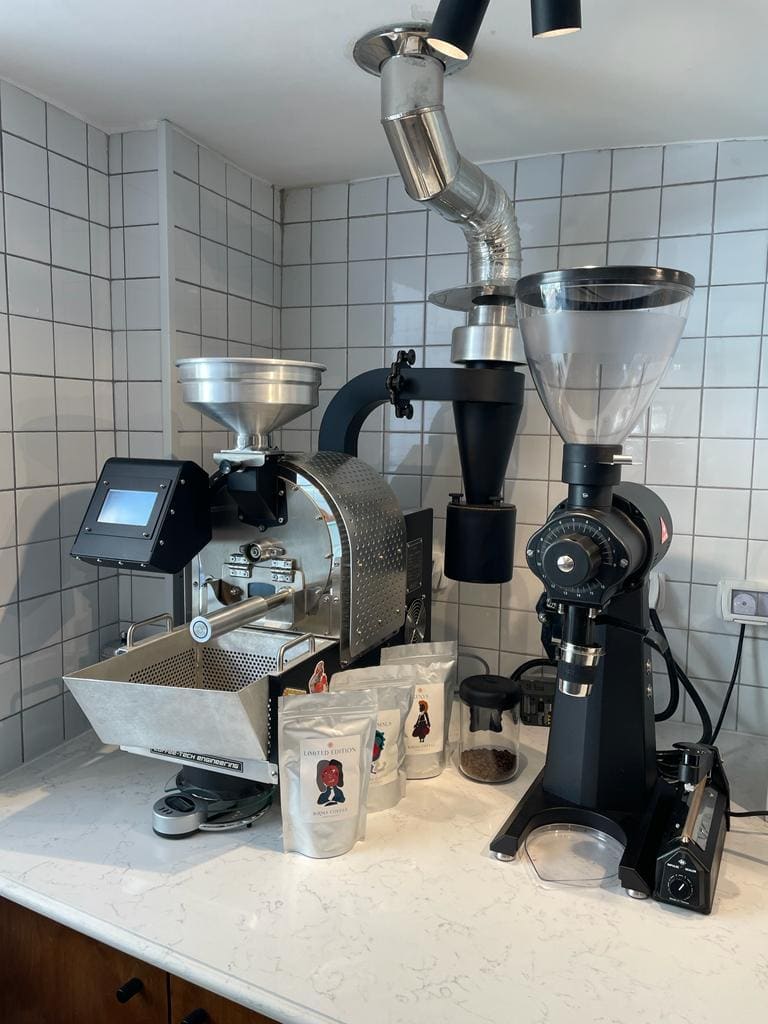
Choosing the right shop roaster machine is a critical decision that will impact the quality of your coffee, the efficiency of your operations, and the growth of your coffee business. With so many options available, it’s essential to carefully evaluate your needs and ensure the machine you select aligns with your goals, experience, and long-term plans. Whether you’re just starting or scaling your operation, making the right choice is crucial to your success.
At Coffee-Tek, we understand the challenges of selecting the perfect coffee roaster machine. Our team is here to help you navigate the options and find a shop roaster that suits your specific needs, whether you’re a beginner or an experienced roaster. Contact us today to discuss how we can assist you in selecting the right roaster for your business, ensuring that you can roast café-quality coffee consistently and efficiently.
Contact Us
